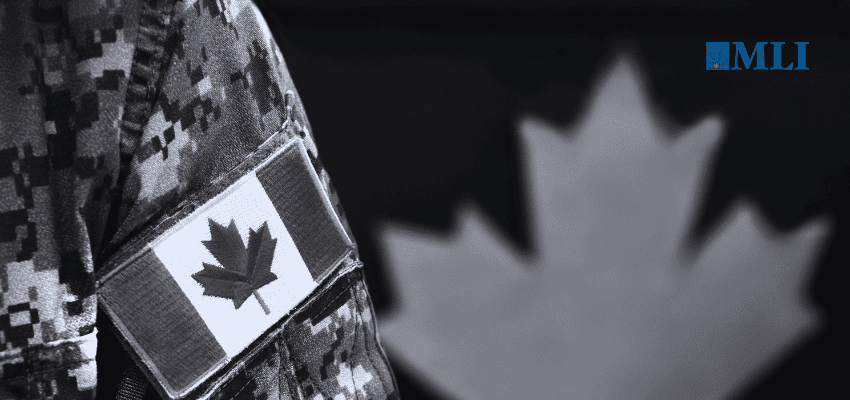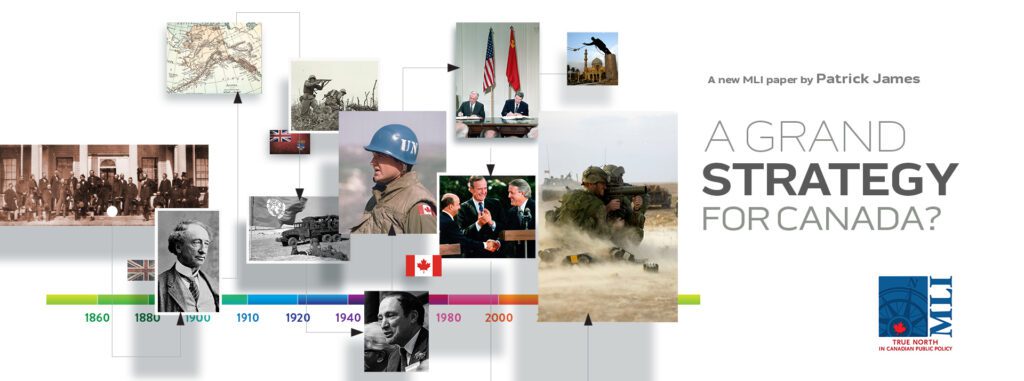This article originally appeared in the Hub.
By Richard Shimooka, July 19, 2024
It’s hard to understate the historical moment that came with NATO’s 75-anniversary summit last week. The milestone the organization reached, being held in the capital of its most powerful member, should have been significant enough on its own. But with the Ukrainian War continuing, increased Chinese aggression in the South China Sea, and the growing prospect of Donald Trump winning a second term has accentuated the summit’s importance. Shoring up NATO’s long-term defence and security has become a major focus across the alliance’s members. It was into this milieu that Justin Trudeau arrived.
As we discussed last August, Canada’s lack of defence spending has affected perceptions of Ottawa in the U.S. Congress as discontent with Canada grows—a fact that the government’s expansive diplomatic presence in Washington, D.C. would have alerted the government to. This is also an experienced PMO that has been through ten summits and would have had a fair inkling of what was in store this last week. In particular, the 2022 Madrid and the 2023 Vilnius summits saw escalating pressure from NATO allies on Canada’s inadequate military contribution.
The rapid and dishevelled release of the defence policy update (DPU) earlier in the spring was likely undertaken in part as preparation for the upcoming NATO Summit. But as we noted at the time, the government was attempting to bifurcate its messaging for different audiences. For the domestic audience, it assiduously avoided any suggestion that Canada was going to reach 2 percent of GDP, using the tortured statement that Canada’s plan to reach 1.76 percent by 2030 was a first step to meeting 2 percent sometime in the future.
Abroad, however, it was a different story. The divergent messaging to Canada’s allies was apparent several weeks later when Minister of National Defence Bill Blair went down to Washington, D.C. to do some salesmanship to the U.S. military leaders and intelligentsia about Canada’s defence spending plans. There he said that the government was committed to reaching 2 percent, and that the country was on track to do so once many of the programs not costed within the update were implemented.
It takes a fair bit of chutzpah to make such a statement once you actually understand how the update came to be released. The original DPU underwent an extended gestation, under the stewardship of then-minister of national defence Anita Anand. The original document that went to cabinet a year earlier contained several options that would commit the government to exceeding 2 percent. Reportedly, the plan died at the cabinet table, and Anand soon left the department. Ten months later, it was resurrected haphazardly to meet the government’s impending foreign policy needs.
In part, this was achieved by effectively stripping out notational costs associated with a number of programs, as well as the accompanying personnel required to operate these new capabilities. While an argument can be made that the department should not try to hire more personnel while it faces a serious retention challenge, the document deliberately understated the actual cost of the government’s defence policy vis-a-vis its earlier drafts of the same document.
Nevertheless, upon entering this year’s summit, the government had developed a plan and prepared messaging to mitigate potential blowback for their lagging performance in this area. Yet the reception they received was likely worse than they had anticipated. Reportedly Canadian representatives were repeatedly called out for the government’s position, while the prime minister faced a rough response from the U.S. speaker of the House and the senate minority leader of the U.S. Congress, who each publicly called Canada out.
While many outlets characterized the government’s hurried announcement that it would eventually reach 2 percent around 2032 as a reversal, it was far from it. Executing the Canadian Patrol Submarine Project, the other major initiative behind the DPU, as well as staffing all of the other projects sufficiently, is almost certain to get beyond the 2-percent threshold. This was always going to be the case. In a way, it was a classic Canadian political announcement: pouring old wine into a new bottle.
What explains the government’s hesitancy to address these challenges directly and honestly? A recent article by Philippe Lagassé from Carleton University and an analysis piece by veteran CBC reporter Murray Brewster both point to a divergence in worldview between Canada and its allies. Lagassé even goes a step further by theorizing that the prime minister may even feel as if his initiative in raising defence spending from 1 percent to the current 1.4 percent has not gained the credit it deserves.
There is ample evidence to support these commenters’ contentions. The first is that this government views foreign policy completely from the domestic policy lens. Prime Minister Trudeau’s most extended public remarks during the summit related to the opening of the NATO Climate Change and Security Centre of Excellence in Montreal, as well as the threat that climate change poses to the alliance. The speech’s contents suggested that alongside Canada’s direct military contributions, it was leading the way against other unconventional threats, like “cyber warfare, resurgent authoritarian forces, expanding regional conflicts, and the impacts of climate change.” Yet given the paucity of Canada’s military spending and hard defence capability outputs, it’s largely viewed as an obfuscation. Senate Minority Leader McConnell’s post on X, likely best summed up many NATO member’s views: “it’s time for our northern ally to invest seriously in the hard power required to help preserve prosperity and security across NATO.”
Trudeau’s perspective seems mired in 2015. Back then he could likely count on like-minded allies like Angela Merkel to support his views. It is exemplified by the 2017 Strong Secure and Engaged defence policy statement which assiduously avoided making the barest mention of Russia or China as potential competitors. The election of Keir Starmer’s Labour government in the U.K. might have at one time been seen as a natural ideological ally for Canada, yet his election manifesto sets out an objective to raise U.K. defence spending to 2.5 percent of GDP. Prime Minister Trudeau now effectively sits alone in his views. The world has changed and he has not caught up.
The events of the past decade have decisively shifted all NATO allies to become much more serious about dealing with hard security threats. One can recall in August 2022 when German Chancellor Olaf Scholz asked Canada to facilitate the export of liquid natural gas to replace the inventories that had come from the Russian Federation. Yet Canada’s refusal was focused on the climate change impacts and the lack of a business case for the project, which ignored the much more immediate security concerns that guided Berlin’s energy policy.
On a broader level, the rest of NATO has been completely seized by the effort to strengthen its eastern defences and manage the war in Ukraine, and actually reaching the 2 percent threshold is the figurative ticket each nation now needs to enter into serious global discussions. The summit’s focus was related to issues front and centre to these ends, such as rapidly scaling up defence production and accelerating the development and adoption of new technologies, as well as strategies for defeating Russia in Ukraine and deterring further aggression.
On the whole, the Liberal government simply has very little to say on any of these matters. There is nobody within the PMO who can speak authoritatively on these hard security issues, while the delayed modernization and even cuts on the Department of National Defence means it is well behind the curve in many of these areas.
At the end of many of my columns, I try to provide ideas and correctives to improve situations, but unfortunately, I don’t hold out much hope for that occurring. In the decade the government has been in power it has shown very little appetite to move off of its previous positions. It is in stark contrast to someone like Emmanuel Macron, who has moved from a fairly dovish position on defence and relations with Russia to someone now stating his desire to deploy French soldiers into Ukraine itself. I must admit that I thought the invasion of Ukraine would force the government to reassess its security posture and realign it to the new threats. I was wrong. Rather, it is now clear that it will take the Canadian public at the ballot box to launch such a change.
Richard Shimooka is a Hub contributing writer and a senior fellow at the Macdonald-Laurier Institute who writes on defence policy.







